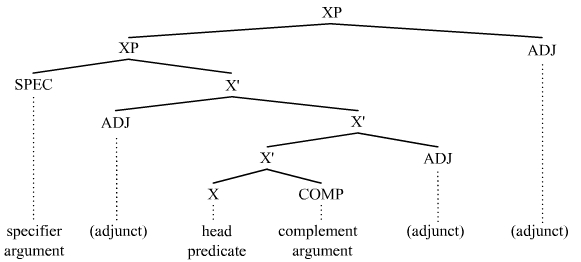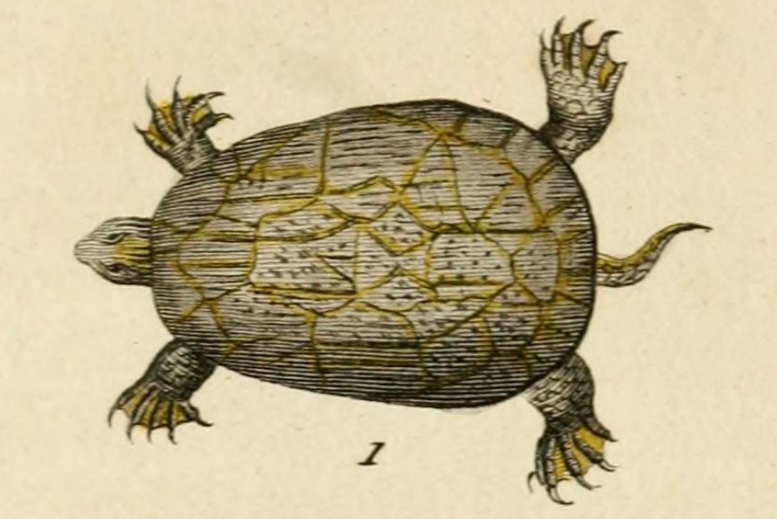|
Information Flow
In discourse-based grammatical theory, information flow is any tracking of referential information by speakers. Information may be ''new,'' just introduced into the conversation; ''given,'' already active in the speakers' consciousness; or ''old,'' no longer active. The various types of activation, and how these are defined, are model-dependent. Information flow affects grammatical structures such as: *word order (topic, focus, and afterthought constructions). *active, passive, or middle voice. *choice of deixis, such as articles; "medial" deictics such as Spanish ''ese'' and Japanese ''sore'' are generally determined by the familiarity of a referent rather than by physical distance. *overtness of information, such as whether an argument of a verb is indicated by a lexical noun phrase, a pronoun, or not mentioned at all. *Clefting: Splitting a single clause into two clauses, each with its own verb, e.g. ‘The chicken turtles tasted like chicken.’ becomes ‘It was the chick ... [...More Info...] [...Related Items...] OR: [Wikipedia] [Google] [Baidu] |
Discourse
Discourse is a generalization of the notion of a conversation to any form of communication. Discourse is a major topic in social theory, with work spanning fields such as sociology, anthropology, continental philosophy, and discourse analysis. Following pioneering work by Michel Foucault, these fields view discourse as a system of thought, knowledge, or communication that constructs our experience of the world. Since control of discourse amounts to control of how the world is perceived, social theory often studies discourse as a window into power. Within theoretical linguistics, discourse is understood more narrowly as linguistic information exchange and was one of the major motivations for the framework of dynamic semantics, in which expressions' denotations are equated with their ability to update a discourse context. Social theory In the humanities and social sciences, discourse describes a formal way of thinking that can be expressed through language. Discourse is a soc ... [...More Info...] [...Related Items...] OR: [Wikipedia] [Google] [Baidu] |
Verb Argument
In linguistics, an argument is an expression that helps complete the meaning of a predicate, the latter referring in this context to a main verb and its auxiliaries. In this regard, the '' complement'' is a closely related concept. Most predicates take one, two, or three arguments. A predicate and its arguments form a ''predicate-argument structure''. The discussion of predicates and arguments is associated most with (content) verbs and noun phrases (NPs), although other syntactic categories can also be construed as predicates and as arguments. Arguments must be distinguished from adjuncts. While a predicate needs its arguments to complete its meaning, the adjuncts that appear with a predicate are optional; they are not necessary to complete the meaning of the predicate. Most theories of syntax and semantics acknowledge arguments and adjuncts, although the terminology varies, and the distinction is generally believed to exist in all languages. Dependency grammars sometimes call arg ... [...More Info...] [...Related Items...] OR: [Wikipedia] [Google] [Baidu] |
Luke Skywalker
Luke Skywalker is a fictional character and the protagonist of the original film trilogy of the ''Star Wars'' franchise created by George Lucas. Portrayed by Mark Hamill, Luke first appeared in ''Star Wars'' (1977), and he returned in ''The Empire Strikes Back'' (1980) and '' Return of the Jedi'' (1983). Over three decades later, Hamill returned as Luke in the ''Star Wars'' sequel trilogy, cameoing in ''The Force Awakens'' (2015) before playing a major role in ''The Last Jedi'' (2017) and ''The Rise of Skywalker'' (2019). He later played a digitally de-aged version of the character in the Disney+ series ''The Mandalorian'', appearing in the second-season finale, which premiered in 2020, and '' The Book of Boba Fett'', in the sixth episode, released in 2022. Originally a farmer on Tatooine living with his uncle and aunt, Luke becomes a pivotal figure in the Rebel Alliance's struggle against the Galactic Empire. The son of fallen Jedi Knight Anakin Skywalker (turned Sith L ... [...More Info...] [...Related Items...] OR: [Wikipedia] [Google] [Baidu] |
Yoda
Yoda () is a fictional character in the ''Star Wars'' universe, first appearing in the 1980 film ''The Empire Strikes Back''. He is a small, green humanoid alien who is powerful with the Force and is a leading member of the Jedi Order until its near annihilation. In ''The Empire Strikes Back'', Yoda was voiced and puppeteered by Frank Oz, who reprised the role in '' Return of the Jedi'', the prequel trilogy, and the sequel trilogy. Outside of the films, the character has been mainly voiced by Tom Kane, starting with the 2003 '' Clone Wars'' animated television series. Yoda is an iconic figure in popular culture due to his distinct pattern of speech and role as a wise mentor. In his first appearance in the original trilogy, Yoda is described as the mentor of Obi-Wan Kenobi, and lives in exile on the swamp planet of Dagobah. He trains Luke Skywalker in the ways of the Force until his death at the age of 900 in ''Return of the Jedi'', though he later returns as a Force spirit. ... [...More Info...] [...Related Items...] OR: [Wikipedia] [Google] [Baidu] |
Chicken Turtle
The chicken turtle (''Deirochelys reticularia'') is a turtle native to the southeastern United States. It is the only extant member of the genus ''Deirochelys'' and is a member of the freshwater marsh turtle family Emydidae. The chicken turtle's scientific name refers to its extremely long neck and distinctive net-like pattern on its upper shell. There are three regionally distinct subspecies (eastern, western and Florida), which are thought to have evolved when populations became separated during periods of glaciation. These subspecies can be distinguished by their appearance; the western chicken turtle displays dark markings along the seams of its plastron (lower shell), while the plastron of the Florida subspecies is a bright yellow or orange color. Fossil records show that the chicken turtle has been present in the region for up to five million years. Chicken turtles inhabit shallow, still or slow-moving bodies of water with plenty of vegetation and a muddy substrate. They ... [...More Info...] [...Related Items...] OR: [Wikipedia] [Google] [Baidu] |
Pronoun
In linguistics and grammar, a pronoun ( abbreviated ) is a word or a group of words that one may substitute for a noun or noun phrase. Pronouns have traditionally been regarded as one of the parts of speech, but some modern theorists would not consider them to form a single class, in view of the variety of functions they perform cross-linguistically. An example of a pronoun is "you", which can be either singular or plural. Subtypes include personal and possessive pronouns, reflexive and reciprocal pronouns, demonstrative pronouns, relative and interrogative pronouns, and indefinite pronouns. The use of pronouns often involves anaphora, where the meaning of the pronoun is dependent on an antecedent. For example, in the sentence ''That poor man looks as if he needs a new coat'', the meaning of the pronoun ''he'' is dependent on its antecedent, ''that poor man''. The name of the adjective that belongs with a "pronoun" is called a "pronominal". A pronominal is also a wor ... [...More Info...] [...Related Items...] OR: [Wikipedia] [Google] [Baidu] |
Noun Phrase
In linguistics, a noun phrase, or nominal (phrase), is a phrase that has a noun or pronoun as its head or performs the same grammatical function as a noun. Noun phrases are very common cross-linguistically, and they may be the most frequently occurring phrase type. Noun phrases often function as verb subjects and objects, as predicative expressions and as the complements of prepositions. Noun phrases can be embedded inside each other; for instance, the noun phrase ''some of his constituents'' contains the shorter noun phrase ''his constituents''. In some more modern theories of grammar, noun phrases with determiners are analyzed as having the determiner as the head of the phrase, see for instance Chomsky (1995) and Hudson (1990). Identification Some examples of noun phrases are underlined in the sentences below. The head noun appears in bold. ::This election-year's politics are annoying for many people. ::Almost every sentence contains at least one noun phrase. ::Current e ... [...More Info...] [...Related Items...] OR: [Wikipedia] [Google] [Baidu] |
Lexical (semiotics)
Content words, in linguistics, are words that possess semantic content and contribute to the meaning of the sentence in which they occur. In a traditional approach, nouns were said to name objects and other entities, lexical verbs to indicate actions, adjectives to refer to attributes of entities, and adverbs to attributes of actions. They contrast with function words, which have very little substantive meaning and primarily denote grammatical relationships between content words, such as prepositions (in, out, under etc.), pronouns (I, you, he, who etc.) and conjunctions (and, but, till, as etc.). All words can be classified as either content or function words, but it is not always easy to make the distinction. With only around 150 function words, 99.9% of words in the English language are content words. Although small in number, function words are used at a disproportionately higher rate than content and make up about 50% of any English text because of the conventional patter ... [...More Info...] [...Related Items...] OR: [Wikipedia] [Google] [Baidu] |
Verb
A verb () is a word ( part of speech) that in syntax generally conveys an action (''bring'', ''read'', ''walk'', ''run'', ''learn''), an occurrence (''happen'', ''become''), or a state of being (''be'', ''exist'', ''stand''). In the usual description of English, the basic form, with or without the particle ''to'', is the infinitive. In many languages, verbs are inflected (modified in form) to encode tense, aspect, mood, and voice. A verb may also agree with the person, gender or number of some of its arguments, such as its subject, or object. Verbs have tenses: present, to indicate that an action is being carried out; past, to indicate that an action has been done; future, to indicate that an action will be done. For some examples: * I ''washed'' the car yesterday. * The dog ''ate'' my homework. * John ''studies'' English and French. * Lucy ''enjoys'' listening to music. *Barack Obama ''became'' the President of the United States in 2009. ''(occurrence)'' * Mike Tro ... [...More Info...] [...Related Items...] OR: [Wikipedia] [Google] [Baidu] |
Japanese Language
is spoken natively by about 128 million people, primarily by Japanese people and primarily in Japan, the only country where it is the national language. Japanese belongs to the Japonic or Japanese- Ryukyuan language family. There have been many attempts to group the Japonic languages with other families such as the Ainu, Austroasiatic, Koreanic, and the now-discredited Altaic, but none of these proposals has gained widespread acceptance. Little is known of the language's prehistory, or when it first appeared in Japan. Chinese documents from the 3rd century AD recorded a few Japanese words, but substantial Old Japanese texts did not appear until the 8th century. From the Heian period (794–1185), there was a massive influx of Sino-Japanese vocabulary into the language, affecting the phonology of Early Middle Japanese. Late Middle Japanese (1185–1600) saw extensive grammatical changes and the first appearance of European loanwords. The basis of the standard dialect ... [...More Info...] [...Related Items...] OR: [Wikipedia] [Google] [Baidu] |
Reference
Reference is a relationship between objects in which one object designates, or acts as a means by which to connect to or link to, another object. The first object in this relation is said to ''refer to'' the second object. It is called a '' name'' for the second object. The second object, the one to which the first object refers, is called the '' referent'' of the first object. A name is usually a phrase or expression, or some other symbolic representation. Its referent may be anything – a material object, a person, an event, an activity, or an abstract concept. References can take on many forms, including: a thought, a sensory perception that is audible ( onomatopoeia), visual (text), olfactory, or tactile, emotional state, relationship with other, spacetime coordinate, symbolic or alpha-numeric, a physical object or an energy projection. In some cases, methods are used that intentionally hide the reference from some observers, as in cryptography. References feature in m ... [...More Info...] [...Related Items...] OR: [Wikipedia] [Google] [Baidu] |
Spanish Language
Spanish ( or , Castilian) is a Romance language of the Indo-European language family that evolved from colloquial Latin spoken on the Iberian peninsula. Today, it is a global language with more than 500 million native speakers, mainly in the Americas and Spain. Spanish is the official language of 20 countries. It is the world's second-most spoken native language after Mandarin Chinese; the world's fourth-most spoken language overall after English, Mandarin Chinese, and Hindustani (Hindi-Urdu); and the world's most widely spoken Romance language. The largest population of native speakers is in Mexico. Spanish is part of the Ibero-Romance group of languages, which evolved from several dialects of Vulgar Latin in Iberia after the collapse of the Western Roman Empire in the 5th century. The oldest Latin texts with traces of Spanish come from mid-northern Iberia in the 9th century, and the first systematic written use of the language happened in Toledo, a prominent city of ... [...More Info...] [...Related Items...] OR: [Wikipedia] [Google] [Baidu] |







